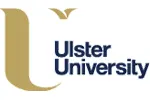Overview
Solve medical challenges with engineered solutions on this MSc in Biomedical Engineering.
You'll study the way engineering can use and build on knowledge from medicine and life sciences, and master tissue engineering, biocompatibility and health technology. You'll study with respected biomedical engineers, and have the opportunity to contribute to their active research projects in fields such as bio-inspired structures, healthcare monitoring or prosthetic limb design.
When you graduate, you'll stand out in a growing and competitive field. You'll be able to identify and solve issues in health technology, to demonstrate your practical abilities with biomedical hardware, and to call on a network of experts, including your lecturers and fellow graduates.
Course Highlights
- Be part of a diverse cohort of biomedical engineering students, from academic backgrounds in engineering, physical or life sciences, or medicine
- Prepare to join the fastest-growing engineering discipline world-wide, with [a projected 72% increase in biomedical engineering jobs in the USA alone over the next 10 years]
- Work with industry-standard hardware in our Future Technology Centre and Biomechanics Laboratory
- Contribute to active research being undertaken by published experts in biomedical engineering research
Careers and Opportunities
The Institution of Mechanical Engineers (IMechE) found, in 2020, that "21st century medicine can only be delivered with significant amounts of technology". With this Master's under your belt, you'll be able to show your knowledge and aptitude for careers in this essential part of the healthcare sector.
You'll have skills in [practical bioengineering], alongside highly developed research and problem solving skills. As a University of Portsmouth graduate, you'll also be eligible to continue professional membership with engineering professional bodies, giving you access to their resources, expert networks and ongoing seminars.
Your skills and experience will make you desirable to employers in healthcare industries, such as [the NHS and private providers], and in wider technical or engineering organisations.
Graduates of this course might go on to roles such as:
- technology management in a hospital
- designing, developing and manufacturing medical devices
- working with healthcare services and products
- technical consultancy for marketing departments
















